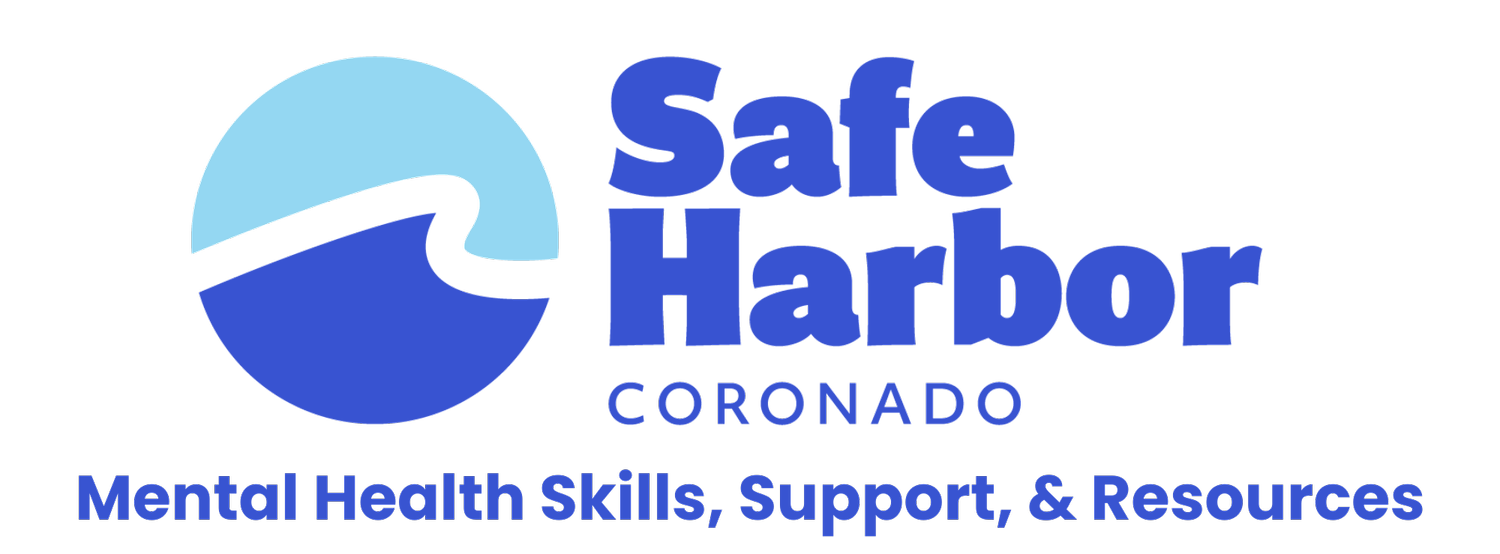A Mental Health Q&A Column for the Community by Safe Harbor Coronado
Welcome to Ask Safe Harbor!
Safe Harbor Coronado is excited to launch a monthly column in the Eagle where trained experts answer your questions about mental health, parenting, youth well-being, and other pressing wellness topics in Coronado. Our licensed counselors and prevention specialists look forward to providing practical, compassionate guidance once a month to our community members.
Submit a Question
*You may include your name or remain anonymous.
-
ASK SAFE HARBOR
Hi my name is Mark Frahm and I am the Development Director at Safe Harbor Coronado.
Welcome to Ask Safe Harbor! We are excited to launch a monthly column in the Eagle which will be posted on social media and our website where trained experts answer your questions about mental health, parenting, youth well-being, and other pressing wellness topics in Coronado. Our licensed counselors and prevention specialists look forward to providing practical, compassionate guidance monthly to our community members.
Any residents wishing to submit a question, please submit via email to: asksh@safeharborcoronado.org. You may include your name or remain anonymous. Questions may be edited lightly for clarity. All published columns will be available on our website, www.safeharborcoronado.org/asksh, creating an online resource the community can return to anytime.
Q: Adults often tell kids to “be an upstander,” but for many middle schoolers that feels scary or overwhelming. What are some realistic first steps students can take to support a classmate or respond when something feels wrong?
A: Being an upstander does not always mean jumping into the middle of a situation. For many students, small steps are the safest and most realistic place to begin. A child might quietly check on a classmate after an uncomfortable incident, invite someone to sit with them, or let a trusted adult know what happened. These actions may seem simple, but they send an important message: “You are not alone.” As children practice these small acts of support, they build confidence and learn they can make a difference without putting themselves at risk. Parents can help by talking with their kids about safe ways to respond, by role-playing different scenarios, and by reminding them that even small gestures of kindness matter.Q: I’ve told my child to speak up if something at school makes them feel unsafe or uncomfortable, but I’m not sure they would. How can I help them identify a trusted adult at school they can go to if they need support?
A: Every child needs at least one adult at school they feel comfortable approaching. Parents can help kids by asking, “If you ever needed help at school, who would you go to?” It might be a teacher, counselor, office staff member, coach, or campus aide. If your child can’t think of anyone, that’s a good opportunity to talk through who feels approachable and why. Some families even visit campus events, back-to-school nights or counselor meet-and-greets to help their child build familiarity. The goal isn’t to force a relationship — it’s to make sure your child knows they don’t have to handle difficult situations alone. When children know exactly who they can go to, they are more likely to seek help when it matters.
